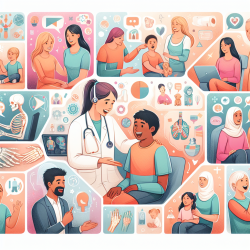Introduction
In the evolving landscape of educational support, community schools are increasingly recognized for their potential to address multifaceted challenges faced by immigrant families. A recent study published in the Journal of Educational Change highlights the integration of a school-based legal clinic for immigrant families as a promising model for enhancing educational equity. This blog explores how practitioners can leverage such findings to improve outcomes for students in similar contexts.
Understanding the Study
The study, titled Immigrant family legal clinic: A case of integrated student supports in a community school context, investigates the implementation of a legal clinic within a K-12 community school. The clinic offers direct legal representation, consultations, and community education, addressing issues such as immigration status, workers' rights, and tenant rights. The study employs an equity-minded school change framework, focusing on technical, normative, and political dimensions of integrating such services.
Key Findings
- Technical Integration: The clinic provides critical legal services that educators alone cannot offer, such as representation in deportation hearings and consultations on immigration-related issues.
- Normative Integration: Building trust within the school community is crucial. The clinic's presence signals a commitment to supporting immigrant families, fostering a safe and inclusive environment.
- Political Integration: The clinic's development was driven by student advocacy and aligned with the school's sanctuary policies, highlighting the importance of community involvement in educational reform.
Implications for Practitioners
Practitioners looking to implement similar initiatives should consider the following strategies:
- Conduct Needs Assessments: Understand the specific legal and social needs of your student population to tailor services effectively.
- Foster Community Partnerships: Collaborate with local universities and legal organizations to build a network of support for immigrant families.
- Engage in Trust-Building Activities: Develop strong relationships with students and families to ensure they feel safe accessing legal services.
- Advocate for Policy Alignment: Ensure that school policies support the integration of legal services and align with broader community goals.
Encouraging Further Research
While the study provides a robust framework for integrating legal services into schools, further research is needed to assess the long-term impact on student outcomes. Practitioners are encouraged to explore additional data collection methods to track the effectiveness of such initiatives.
Conclusion
Integrating legal clinics into community schools represents a significant step towards educational equity for immigrant families. By addressing legal and social barriers, schools can create a more inclusive and supportive environment for all students. Practitioners are encouraged to leverage these insights to enhance their own educational settings.
To read the original research paper, please follow this link: Immigrant family legal clinic: A case of integrated student supports in a community school context.










